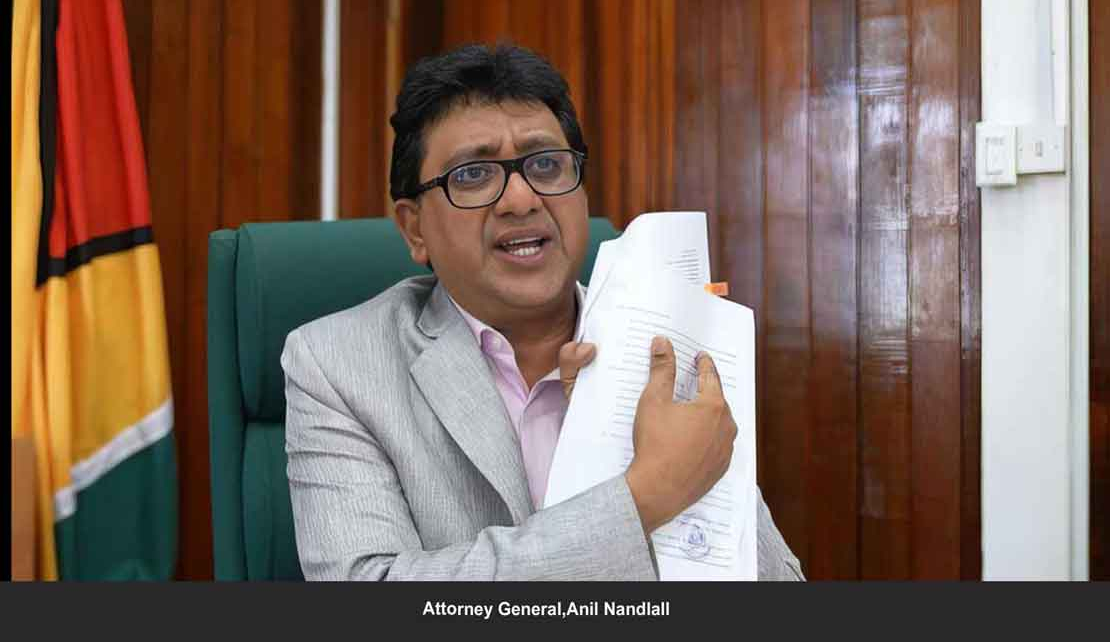GUYANA | Attorney General Proposes new extradition law; may target political opponents

GEORGETOWN, Guyana, June 8, 2024 - In a legal shift that may be a cause for concern and worry, Attorney General and Minister of Legal Affairs Anil Nandlall announced plans to amend Guyana’s extradition laws to facilitate easier transfers of suspects to and from the United States.
Speaking at the 58th Plenary and Working Group Meetings of the Caribbean Financial Action Task Force (CFATF) in Trinidad, Nandlall stated that these changes are expected to be enacted next week. The amendments aim to simplify the extradition process, thereby enhancing bilateral cooperation with the US, which has previously lauded Guyana for its efforts in capturing and extraditing suspects.
Government says that the move comes as part of Guyana’s broader commitment to international cooperation in combating financial crimes. Guyana’s recent membership in the Egmont Group, an international network of Financial Intelligence Units (FIUs), underscores this commitment, the government said.
The Egmont Group facilitates the exchange of information and collaboration among member states to fight financial crimes such as money laundering and terrorism financing.
However, this development is not without controversy. At least one political analyst is concerned that the new extradition laws could be exploited by the ruling People’s Progressive Party (PPP) to target political opponents and dissidents.
Such fears are rooted in the government’s history and current political climate, where legal mechanisms have been viewed as tools for political repression.
A notable case highlighting these concerns is that of Rickford Burke, a US-based Guyanese political activist and a prominent critic of the PPP.
The Guyana Police Force (GPF) has issued wanted bulletins for Burke, citing a range of charges that include conspiracy to commit a felony related to defamatory libel, sedition, and incitement of racial hostility and public terror.
These charges stem from his outspoken criticism of the PPP government, particularly during his appearances on social media platforms where he has not minced words in his opposition to the governing party.
Extradition is a formal process where one country surrenders an individual to another for prosecution or punishment for crimes committed in the requesting country’s jurisdiction.
It serves as a crucial tool in international law enforcement, ensuring that criminals cannot evade justice by simply crossing borders. However, the process requires stringent safeguards to prevent it from being misused for political vendettas.
Burke’s case exemplifies the potential dangers of such misuse. Residing in the US has provided him with a degree of protection against what many believe are politically motivated charges.
The wanted bulletins issued by the GPF accuse Burke of various offences under Guyanese law, including sedition under the Cyber Crime Act, which criminalises actions against the government and the incitement of racial divisions.
Additional charges include the use of a computer system to disseminate false information to damage someone’s reputation and incitement of public terror.
The timing of Nandlall’s announcement raises critical questions about the potential implications for political activists like Burke.
If the new extradition laws come into effect, there should be a genuine concern among opposition figures and human rights groups that the PPP could use these legal changes to extend their reach and silence critics living abroad.
Given the enhanced international cooperation through the Egmont Group, the government might gain further leverage in tracking and prosecuting its opponents beyond national borders.
As our nation stands on the brink of implementing these new extradition laws, many Guyanese are left to wonder about the future actions of the PPP.
Will these legal amendments genuinely serve the cause of justice, or will they become instruments of political repression? The concern is not merely theoretical; it touches on the core principles of democracy and human rights.
The government’s next steps will be scrutinised, as the balance between law enforcement and political freedom remains precarious.
For now, says one analyst, the shadow of political persecution hangs over the promised legal reforms, and should be prompting widespread debate about the true intentions behind the new extradition laws and the broader implications for Guyana’s democracy and justice system.
-30-
